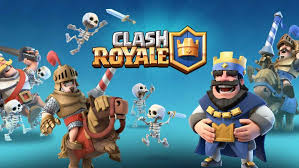Games, in their myriad forms, have been an integral part of human culture since time immemorial. From ancient board games to the digital realms of video descargarclashroyalegratis.net, the concept of play has consistently captivated the human imagination. Games not only serve as a source of entertainment but also play a crucial role in social bonding, cognitive development, and even therapeutic interventions. This article explores the universality of games,
The Historical Tapestry of Games
The history of games can be traced back to the earliest human societies. Archaeological evidence suggests that board games like Senet in Ancient Egypt and Go in China date back thousands of years. These games were not only sources of amusement but also reflections of cultural values and societal structures. In many ancient civilizations, games were associated with religious rituals, military strategy, and moral education.
The Renaissance and the Age of Enlightenment saw the emergence of games that emphasized intellectual challenges. Chess, for instance, became a symbol of strategic thinking and nobility. Card games, which likely originated in China, also gained popularity and evolved into a wide array of variations across different cultures.
The Industrial Revolution and the Rise of Modern Games
The 19th century witnessed significant changes in the world of games. The industrial revolution brought about the mass production of games, making them more accessible to people of various social classes. Parlor games, such as charades and word games, became popular forms of entertainment in Victorian households their historical roots, and their evolution into the diverse forms we encounter today.



